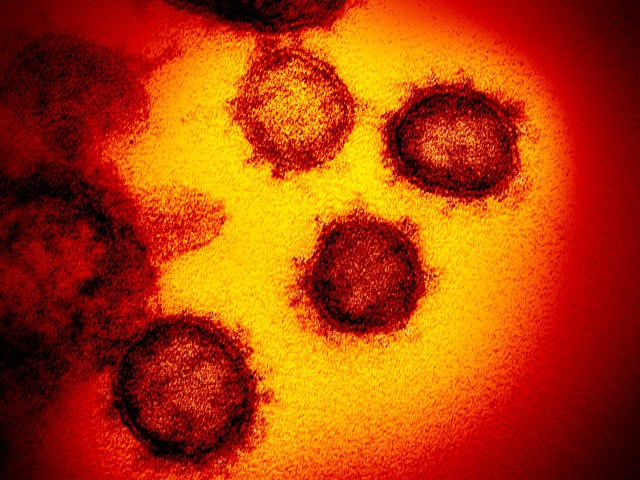A study under peer review at Princeton University has found that the novel coronavirus can, in fact, survive on its own “up to days” at a time.
“Our results indicate that aerosol and fomite transmission of HCoV-19 is plausible, as the virus can remain viable in aerosols for multiple hours and on surfaces up to days,” the abstract says:
HCoV-19 (SARS-2) has caused >88,000 reported illnesses with a current case-fatality ratio of ~2%. Here, we investigate the stability of viable HCoV-19 on surfaces and in aerosols in comparison with SARS35 CoV-1. Overall, stability is very similar between HCoV-19 and SARS-CoV-1.
We found that viable virus could be detected in aerosols up to 3 hours post aerosolization, up to 4 hours on copper, up to 24 hours on cardboard and up to 2-3 days on plastic and stainless steel. HCoV-19 and SARS-CoV-1 exhibited similar half-lives in aerosols, with median estimates around 2.7 hours.
Both viruses show relatively long viability on stainless steel and polypropylene compared to copper or cardboard: the median half-life estimate for HCoV-19 is around 13 hours on steel and around 16 hours on polypropylene. Our results indicate that aerosol and fomite transmission of HCoV-19 is plausible, as the virus can remain viable in aerosols for multiple hours and on surfaces up to days.
In plain speech, the study, currently being reviewed by Princeton University, has found that the virus can survive floating in the air for up to three hours, and up to three days on both plastics and stainless steel. These findings mean that containment of the global pandemic known as the novel coronavirus, or, officially “COVID-19,” could be far more difficult than previously believed.
The World Health Organization has stated that they are “deeply concerned both by the alarming levels of spread and severity, and by the alarming levels of inaction” in response to the contagion. As states across the nation begin to shut down public gatherings and issue health alerts, the federal government is struggling to find adequate measures to test victims and develop a vaccine.
In recent days, President Donald Trump has responded with economic aid, an increase in efforts to test the sick and develop a vaccine, and a call for nonpartisan national unity in the face of the global health crisis.

COMMENTS
Please let us know if you're having issues with commenting.